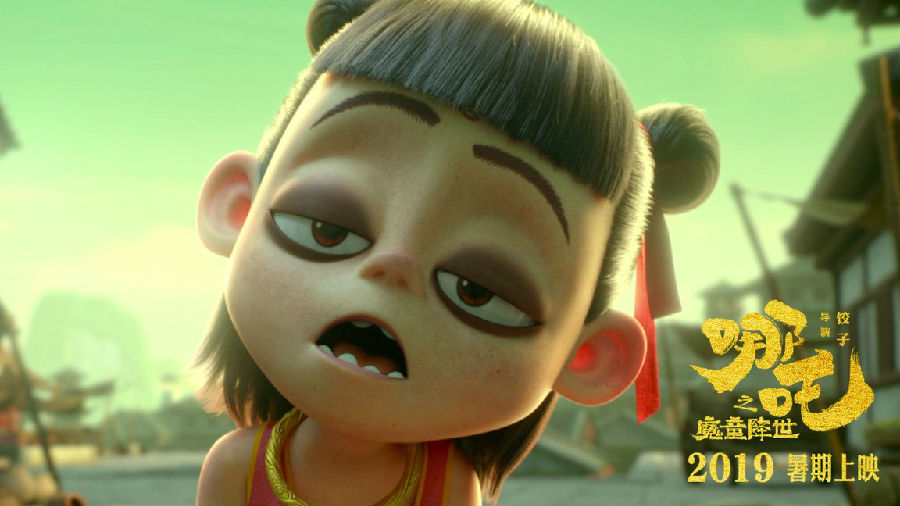Ne Zha wows Chinese viewers
《哪吒之魔童降世》讓國漫燃起希望之光
It's not easy for a mythology-based movie, which has been changed a number of times, to keep wowing viewers.
對(duì)于一部被多次改編的神話電影而言,想令觀眾感到眼前一亮并非易事。
But the popular summer movie, Ne Zha, which came out in Chinese mainland cinemas on July 26, has done just that. This month has seen it break a box office records to become the biggest ever animated movie in China. Many Chinese internet users have praised the film, calling it "the glorious light of domestic anime".
但今年7月26日上映的暑期檔大熱電影《哪吒之魔童降世》就做到了。該片已于本月打破了票房紀(jì)錄,成為中國影史上票房最高的動(dòng)畫電影。許多中國網(wǎng)友都盛贊這部電影,稱其為“國漫之光”。

The success of the film comes from the clever take on the well-known work of classical Chinese mythology: The Investiture of the Gods. Ne Zha, one of the work's main figures, has traditionally been seen as a loveable child hero, but this newest retelling has made him into a rebellious underdog who has to overcome hardship and his dark destiny to become a hero.
這部電影的成功之處在于巧妙地呈現(xiàn)了家喻戶曉的中國古典神話《封神演義》。故事的一大主角哪吒向來都被塑造成一個(gè)可愛的少年英雄形象,但在這部最新的改編作品中,他成了一個(gè)被人瞧不起的叛逆者,歷經(jīng)種種艱險(xiǎn),不懼坎坷宿命,最終才成為了一位英雄。
The new story of Ne Zha, as China Daily put it, has a strong faith in the traditional Chinese culture, giving it a "modern meaning". The film is the "epitome of the rebellious but righteous youth", which young Chinese people can relate to, encouraging them to become dream-chasers and fate-changers.
正如《中國日?qǐng)?bào)》所言,這部哪吒新傳對(duì)中華傳統(tǒng)文化有著強(qiáng)烈的自信,并賦予其“現(xiàn)代意義”。這部電影正是“叛逆卻又正直的年輕人的縮影”,令中國年輕人感同身受,并鼓勵(lì)他們勇敢追夢,改變命運(yùn)。












